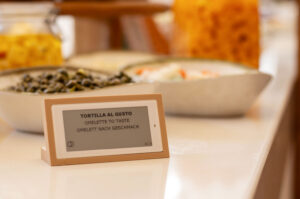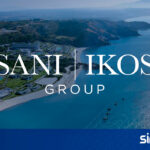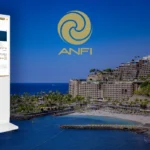The buffet is one of the flagship services in hotels, but also one of the riskiest in terms of food safety in buffets. Allergens, dish rotation, and the need to provide clear information make label management a constant challenge.
In this context, regulatory compliance is no longer just a legal requirement: it is an opportunity to strengthen guest trust, improve operations, and differentiate the hotel.
The legal framework every hotel must comply with
In Europe, Regulation (EU) 1169/2011 requires allergens in food to be identified and communicated clearly. In Spain, legislation is reinforced with specific health and consumer requirements that apply to hotel catering. Failure to comply with these obligations can result in financial penalties, legal claims, and reputational damage.
Ensuring food safety is not optional: it is an essential requirement that, when properly managed, becomes an added value.
The risks of manual buffet management
Many hotels still rely on paper labels to inform guests about dishes. This model has clear limitations:
- Human errors: missing, misplaced, or incomplete labels.
- Lack of agility: last-minute changes that cannot be updated in time.
- Material wear and tear: damaged signage that creates a poor impression.
- Health risks: outdated information that can cause allergen incidents.
Digitalization as the solution
Electronic labeling completely transforms buffet information management. With solutions like BuffetSmart, everything is centralized and updated within seconds, ensuring accuracy and consistency at every service.
- Reliable information: allergens and descriptions always updated and visible.
- Centralized management: changes are applied from one single panel to all labels.
- Accessibility: the ability to display information in multiple languages.
- Document control: automatic logging of changes that strengthens traceability.
Strategic benefits for the hotel

Beyond regulatory compliance, digitalizing the buffet brings advantages that directly impact the hotel’s competitiveness:
- Legal protection: reduced risk of penalties and claims.
- Guest trust: clear information that conveys transparency and safety.
- Operational efficiency: staff save time on repetitive tasks and focus on service.
- Reputation and innovation: the hotel is positioned as modern and responsible.
In addition, the flexibility provided by a system like BuffetSmart further reinforces these benefits. If a chef needs to modify a recipe or add a new dish to the menu, allergens and information can be instantly updated from a mobile device or tablet. This eliminates the need for slow processes like design, printing, and laminating, and significantly reduces the risk of errors. The immediacy of changes not only guarantees food safety but also provides peace of mind for both staff and guests.
Turning compliance into a competitive advantage
Food safety in buffets cannot be treated as just another formality. Digital labeling turns a legal obligation into a lever of trust and differentiation. With clear information, efficient processes, and more satisfied guests, hotels not only comply with the law but also gain value and reputation.
Sources and references
- Regulation (EU) 1169/2011 on food information to consumers.
- Spanish Agency for Food Safety and Nutrition (AESAN) – Allergen information.









